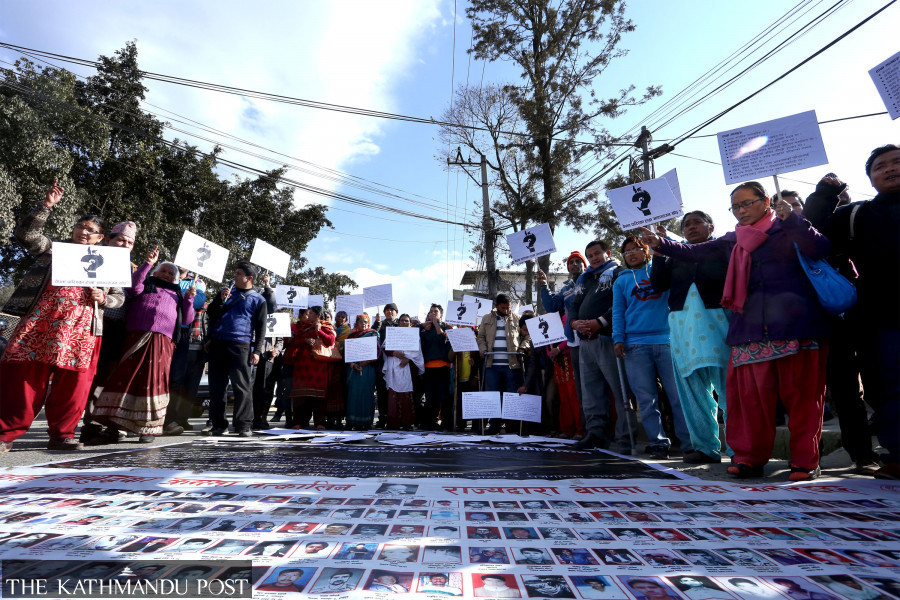Editorial
They still hope
All that the conflict victims are now looking for is a sense of respectful closure.
In a way, seeing Pushpa Kamal Dahal, the commander of the decade-long Maoist insurgency—during which at least 15,000 Nepalis were killed while over 2,500 “disappeared”—at the head of government might instil a sense of hopelessness among conflict victims. This is also because the Maoists have repeatedly been in the government for most of the past 16 years since the signing of the Comprehensive Peace Agreement. The party has in this time strongly opposed any solution that involves admittance of guilt in cases of grave human rights violations from the conflict period.
Yet following the well-trodden path of successive governments, “timely completion of the peace process” has once more found a mention in the new Dahal government’s common minimum programme. It has committed to concluding the process without further delay, and promised to amend the Enforced Disappeared Enquiry, Truth and Reconciliation Act 2014 in order to deliver justice “while also ensuring reparation to the victims, thereby promoting reconciliation”. The promise, though, has left victim families even more worried as they fear the new plan could be aimed at forced reconciliation.
For the victims of the 10-year Maoist insurgency, the commitment amounts to yet another attempt to push through a bill with problematic provisions aimed, more or less, at granting blanket amnesty. In July 2022, after the Ministry of Law and Justice came up with a bill to amend the Act, victims said the opinions they had given during multiple consultations had been ignored. Chances are, the government will revive the same flawed bill, bringing the whole process to another impasse. Moreover, the Truth and Reconciliation Commission and the Commission for the Investigation of Enforced Disappeared Persons, which were formed in 2015, have now become defunct after multiple term extensions and little work.
Each of the three major parties in the current Parliament has led the government more than once since the start of the peace process. Yet none has shown the commitment for a just end to the transitional justice process. With Dahal getting an overwhelming majority in Parliament, there is virtually no strong opposition party to take up the issue this time even for the sake of oppositional politics.
As of now, little effort has been made to accommodate the viewpoints of the victim families, and of national and international rights bodies. A transitional justice process that keeps the victims out is bound to fail. Yet it would be also unjust to single out Dahal or the Maoists. The country’s strongest institution, Nepal Army, which has also been implicated in countless cases of human rights violations from the conflict period, is as strongly opposed to any reckoning with the past. As are influential leaders of Nepali Congress who occupied high state positions as they were trying to suppress the insurgency with brute force.
With all concerned political parties and state institutions refusing to look past their narrow interests, the prospect of justice for the long-suffering conflict victims still appears dismal. But after years and years of disappointment, they don’t seek much. All they are now looking for is a sense of respectful closure. It is in the interest of everyone—Prime Minister Dahal and the Maoist party, the conflict victims, the country—to work out a compromise solution soon. The longer this thing drags on, the messier the transitional justice process will get, with all its attendant implications for the country's image.




 13.12°C Kathmandu
13.12°C Kathmandu













